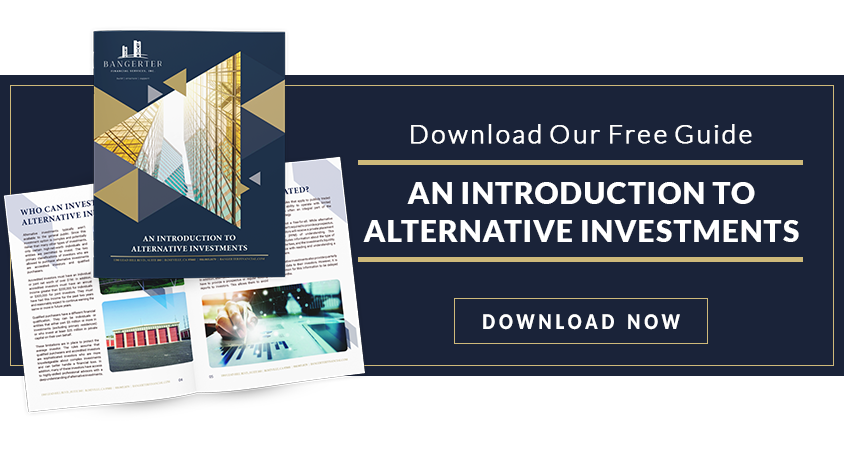If you’ve been wondering whether alternative investments are a good idea for your portfolio, you’re not alone. Many investors are frustrated with current market conditions, leading them to seek out other investment options.
While alternative investments offer many potential benefits, they’re not suitable for every investor. Before adding them to your portfolio, it’s essential to understand precisely what you’re getting into. Here’s what you need to know.
What is an Alternative Investment?
Most investors are familiar with the three primary asset classes: stocks, bonds, and cash. An alternative investment is a financial asset that doesn’t fit into one of these three categories.
Some of the most common alternative investments include private equity, private debt, commodities, hedge funds, and real estate. Just like any other type of investment, each of these options has potential benefits and drawbacks.
Potential Benefits of Alternative Investments
There are many reasons investors choose to add alternative investments to their portfolios. Here’s a closer look at some important benefits.
Diversification
Alternative investments offer portfolio diversification beyond what you can get from the three primary asset classes. Since there’s a low correlation between alternative and traditional asset classes, adding alternative investments to your portfolio may help lower its overall volatility.
Earnings Potential
Since they’re not as heavily regulated as traditional asset classes, alternative investments may offer higher growth or income opportunities.* However, the added potential reward often comes with additional risk. When choosing alternative investments, it’s important to look for options that have performed consistently over several market cycles.
Different Investment Opportunities
Some types of alternative investments provide investment opportunities that an individual investor might not have access to. For example, an alternative investment might allow you to get in on the ground floor of a start-up company or purchase shares of a large retail space.
Inflation Hedge
While cash savings and fixed-income are typically low-risk investments, they’re vulnerable to inflation risk. Some alternative investments, like commodities and private real estate, help provide a hedge against inflation. This can help preserve your future buying power.
Potential Tax Advantages
Many alternative investments provide tax advantages. They may give you the ability to defer the taxes owed on a transaction or lower your tax liability by taking advantage of tax credits or tax-loss carryforwards.
Potential Drawbacks to Consider
While you may be intrigued by the benefits of alternative investments, it’s vital to understand the potential drawbacks. You’ll want to make sure you’re comfortable with the following risks before considering adding an alternative investment to your portfolio.
Barriers to Entry
Alternative investments often have high minimums. If you don’t have a significant amount of money to invest, you may not be able to take advantage of the opportunity. In addition, only accredited investors are generally allowed to purchase alternative investments.
To qualify as an “accredited investor,” you’ll need to have an individual or joint net worth of over $1 million and have an annual income of more than $200,000 (for individuals) or $300,000 (for joint investors) and reasonably expect to continue these high earnings for the foreseeable future.
Lack of Liquidity
Most alternative investments are illiquid. Once you’ve invested in them, you may lose access to your money for up to ten years or more. If an emergency comes up and you need cash, getting your money out of an alternative investment is usually not an option.
Complexity
Even seasoned investors often find alternative investments to be highly complex. Unless you have the time to do extended due diligence, you’ll want to work with a professional. Ensure the advisor you’ve chosen has extensive knowledge regarding the specific type of alternative investment you’re considering.
High Fees
Alternative investments often have higher fees when compared to other asset classes. The potential for higher returns may be worth it, but not always. When evaluating alternative investments, you’ll want to look for options with a proven record of higher returns than the fees.
Continue Exploring Alternative Investments
Now that you understand the basics of alternative investments, you may want to explore them in further detail. While this overview provides a basic introduction, there’s much more to learn.
Continue your research by downloading a copy of our new whitepaper: “An Introduction to Alternative Investments.” In it, you’ll find more information about the most popular types of alternative investments and how certain investments can be accessed through the use of a 1031 exchange.
If you have additional questions, we encourage you to contact us to schedule a consultation. We’re happy to help you evaluate your situation and decide whether alternative investments are appropriate for you.
 *Potential cash flows/returns/appreciation are not guaranteed and could be lower than anticipated.
*Potential cash flows/returns/appreciation are not guaranteed and could be lower than anticipated.
Diversification does not guarantee a profit or protect against a loss in a declining market. It is a method used to help manage investment risk.




.png?width=273&height=103&name=Brokercheck%20(1).png)

Comments